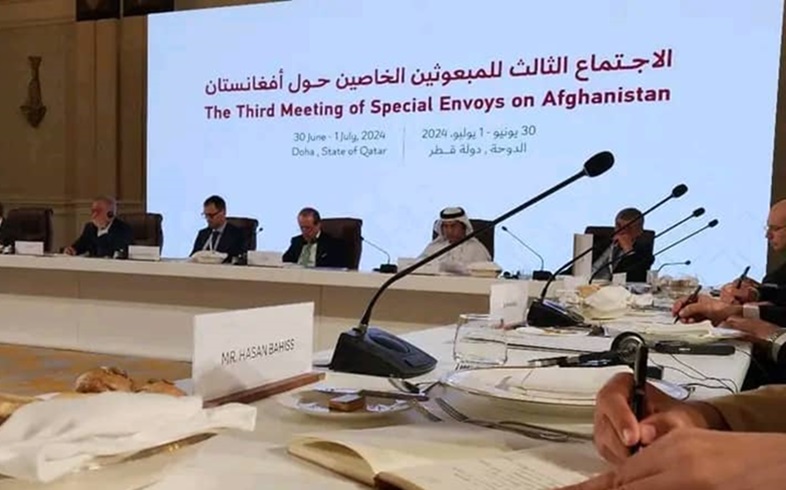Although the 3rd Doha meeting had faced many reactions before it was held, it ended without any concrete and significant results for Afghanistan.
This meeting, which was held on June 30th and July 1st with the presence of representatives of 25 countries, 5 international organizations and a delegation of the caretaker government of Afghanistan, was held under the chairmanship of the United Nations, as expected it did not have a significant result.
Rosemary DiCarlo, the United Nations Under-Secretary-General for Political Affairs and Peace, who chaired the meeting, expressed her hope in the press conference after the two-day meeting that there would be some progress with the interaction and discussions with the caretaker government to arise in the process of governance.
Mrs. DiCarlo described the discussions held during the two-days meeting as frank and useful, but emphasized that this meeting does not mean normalization or recognition of the Taliban government, but rather the beginning of the process that is included in the recommendations of the independent UN evaluator.
Issues related to the economy, fight against narcotics and lifting of sanctions have been discussed in the meeting, but it is not yet clear what agreements have been reached.
However, caretaker government spokesman Zabihullah Mujahid, who attended the meeting at the head of a six-member delegation, wrote that he asked the participants in the Doha meeting to focus on removing all sanctions, canceling the restrictions imposed on the private sector, and returning the frozen assets of the Central Bank. Also Mr. Mujahid has said that their government has banned the cultivation, production and trafficking of drugs, and for this reason, he wants help in promoting alternative cultivation for Afghan farmers.
Mr. Mujahid mentioned the economy-oriented foreign policy of the caretaker government and added that they are talking with the countries of the region regarding economic projects.
He called the outcome of the Doha meeting “good” and appreciated the stance of Russia, China, Iran, Pakistan, Kazakhstan, Uzbekistan, Kyrgyzstan, Turkmenistan, America and the Organization of Islamic Cooperation.
Meanwhile, the non-invitation of representatives of political parties, civil society and women of Afghanistan provoked widespread criticism and protests against the United Nations and many accusations were also directed at this organization.
Although Mrs. DeCarlo, the Deputy Secretary General of the United Nations, considered the concerns of women and civil society of Afghanistan as a central issue and emphasized that the United Nations will not reduce its mission in relation to civil society and women, but the absence of representatives of women and civil society Afghanistan in the main meeting is strongly questioning this organization.
Habiba Sarabi, a member of the previous government’s peace negotiating team, Nabila Mosleh and Zubaidah Akbar rejected the invitation of the United Nations to participate in the marginal meeting in Doha. Habiba Sarabi considered this meeting as ignoring the real and meaningful participation of women based on the Security Council 2721 Resolution and while describing the situation of human rights in Afghanistan as deteriorating, she criticized the lack of a mechanism to hold accountable the systematic violations of the rights of women, Hazaras and religious minorities. Nabila Mosleh also said that women should be present at the main table of the meeting and participate in the main negotiations.
However, the UN is said to have held another meeting on the third day after the original meeting with a number of people named as representatives of women and civil society, so far, no information about the identity of the participants and the topics discussed has been made available to the media.
It is expected that the United Nations will continue the current process in the future, and considering that the formation of special committees was mentioned in the Doha meeting, the work may be carried out in a more specialized and intensive manner.











Read More
Afghanistan National Futsal Team Starts Strong with a Decisive Victory over Tajikistan
Afghanistan National Futsal Team Faces a Tough Challenge in the “Group of Death” at the Islamic Solidarity Games
The Lions of Khorasan Crowned Champions After a Historic Humiliation of Iran